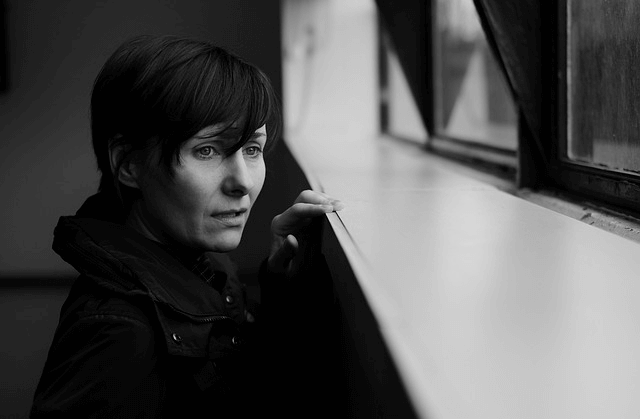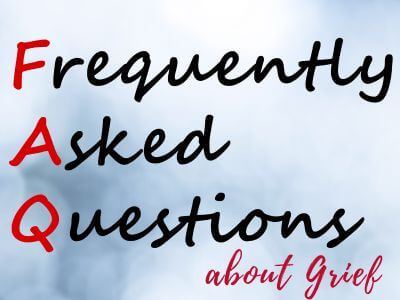Grief is a universal human experience that transcends the loss of a loved one. It encompasses a complex range of emotions and reactions triggered by various life events, such as the death of a family member, job loss, moving away from friends, the challenges of aging, or any significant change that disrupts our sense of normalcy.
I have previously written a blog on grief titled "Navigating the Ocean of Grief: Exploring the Complex Layers of Loss and Discovering Paths to Healing." In that article, I explored the rollercoaster of emotions associated with grief. However, given the profound and often misunderstood nature of this season in our lives, I felt compelled to delve even deeper into this topic.
In this article, we will explore the multifaceted nature of grief, once again drawing insights from experts like Dr. H. Norman Wright, who wrote "Recovering from Losses of Life," and Dr. Alan D. Wolfelt, who delved into the concept of "Complicated Grief." In Part 2, we will discuss strategies for coping with grief and answer common questions to provide guidance on the path to healing and resilience.

The Grief Factors - Understanding the Different Forms of Grief
Navigating the intricate landscape and world of grief involves understanding its diverse forms, each presenting its unique set of challenges and emotions. Understanding these facets or factors of grief is a crucial step in the healing journey.
Then you will call on Me and come and pray to Me, and I will listen to you.
Jeremiah 29:12 NIV
1. Bereavement Grief:

Bereavement Grief, perhaps the most familiar, arises from the loss of a loved one and is guided by insights from Dr. H. Norman Wright's "Recovering from Losses of Life." (You can find it on Amazon.)
It's a natural response to the profound loss of someone close to us. This type of grief can encompass a wide range of emotions, including profound sadness, anger, guilt, and even relief in some cases.
Bereavement grief doesn't follow a set timetable, and its intensity can vary from person to person. Dr. Wright emphasizes the importance of acknowledging these emotions and allowing oneself to express and grieve in their unique way. It's a journey of healing that can be eased by seeking support from friends, family, or grief support groups.
Be of good courage, and He shall strengthen your heart, all ye that hope in the LORD. Psalm 31:24 KJV
2. Non-Death-Related Grief:

Non-death-related grief extends beyond the loss of a loved one and can be triggered by various life changes. Examples include losing a job, experiencing divorce, the end of a significant relationship, children, or even moving from one place to another. This type of grief is often underestimated but can be just as emotionally challenging as bereavement grief.
Non-death-related grief can bring about feelings of loss, hurt, rejection, and uncertainty about the future. Coping strategies for this type of grief may include seeking professional guidance, joining support groups, or finding new ways to redefine oneself and find meaning in the face of change.
3. Ambiguous Loss:
Ambiguous loss, a concept introduced by Dr. Pauline Boss, occurs when a loss is unclear or uncertain. This can manifest in situations such as when a loved one goes missing, is physically present but emotionally absent (e.g., due to Alzheimer's disease), or in cases of unresolved family conflicts.
Dr. Pauline Boss on Ambiguous Loss
Ambiguous loss can be particularly challenging because it defies traditional grief rituals and can leave individuals in a state of limbo, oscillating between hope and despair. Pay particular attention to children as they try to cope with loss, especially when moving to a new location.
Coping with ambiguous loss may involve acknowledging the uncertainty, seeking professional guidance, and finding ways to adapt to the ambiguity.
So do not be dismayed, for I am your God. I will strengthen you and help you; I will uphold you with My righteous right hand. Isaiah 41:10 NIV
4. Complicated Grief:

Complicated grief, as discussed by Dr. Alan D. Wolfelt in his book "Complicated Grief," represents a form of grief that becomes prolonged and debilitating. It can be triggered by any of the aforementioned forms of loss but is characterized by the inability to move forward or adapt to living a life without the person or situation that was lost.
In complicated grief, individuals may experience excessive rumination or persistent and intense feelings of sadness, anger, guilt, or bitterness that interfere with daily functioning. It's essential to recognize the signs of complicated grief and seek professional help when needed.
...complicated grief is a normal, human, soul-based response to naturally complex life and loss circumstances. ... Rather, we have agreed to understand complicated grief as normal grief--which by its very nature is always complicated--that has gotten extra complicated somehow.
Alan D. Wolfelt
Treatment may involve therapy, support groups, and interventions to help individuals process their grief and find a path towards healing.
Understanding these various forms of grief highlights the complexity of the human emotional experience when faced with loss. Each form requires its unique approach to coping and healing, emphasizing the importance of acknowledging, seeking support, and finding ways to navigate the grief journey effectively.
We will talk about strategies for dealing with these facets of grief in Part 2 of our article.
Bless are those who mourn, for they shall be comforted. Matthew 5:4 NIV
5. Anticipatory Grief
Anticipatory grief is a unique form of grief that occurs before an expected loss. It encompasses the complex emotions and reactions that individuals experience when they anticipate the impending death or loss of a loved one from natural causes or the loss of a significant aspect of their life.
This type of grief can be triggered by various factors, such as a terminal illness diagnosis, the deterioration of a loved one's health, or the anticipation of major life changes, like retirement or the end of a long-term relationship.
Anticipatory grief allows individuals to begin the grieving process before the actual loss occurs, providing them with an opportunity to prepare emotionally and mentally for the challenges that lie ahead.
VNS Health has an excellent article on 5 steps to take in dealing with anticipatory grief.
Saying Goodbye to a Loved One
How Our Unresolved Wounds Bleed and Leak
Dealing with grief is a complex and deeply personal journey, often intertwined with our unresolved wounds and emotional scars.
Just as depression is like a physical wound that, when left untreated, can fester and lead to complications, our emotional wounds can resurface and intensify during times of grief.
Understanding how these unresolved wounds can bleed and leak into the grieving process is essential for healing and resilience.
When we experience grief, whether it's due to bereavement, non-death-related losses, ambiguous loss, or complicated grief, our past emotional wounds can be triggered.
These unresolved wounds may include past traumas or trauma, unresolved conflicts, or unmet needs from our earlier life experiences. Grief acts as a magnifying glass, amplifying the pain we carry within us, and sometimes even reopening old wounds we thought had healed.
Sometimes a person reexperiences trauma not through memories or images but through painful and angry feelings that seem to come out of nowhere These feelings occur because they were repressed at an earlier time. Now the emotions are simply crying out for release. H. Norman Wright
For example, the death of a loved one may awaken feelings of abandonment if we've experienced abandonment in the past. A job loss might trigger deep-seated feelings of inadequacy if we've struggled with self-esteem issues.
These unresolved wounds can bleed into our grief, making it even more challenging to navigate the emotional turmoil.
Recognizing the connection between our past wounds and our grief reactions is the first step toward healing. It's crucial to give ourselves permission to acknowledge and address these underlying issues.
Seeking the support of a therapist or counselor experienced in grief therapy can be immensely beneficial in this process. They can help us explore the roots of our unresolved wounds and provide tools to cope with them effectively during the grieving process.
Furthermore, as we confront these unresolved wounds during grief, it's essential to practice self-compassion and self-care. Be patient with yourself, as healing takes time, and it's entirely normal for unresolved wounds to surface during this vulnerable period.
Surround yourself with a support network of friends and family who can provide emotional support and understanding as you work through both stages of your grief and these lingering emotional scars.
My soul melts away for sorrow; strengthen me according to your Word! Psalm 119:28 NIV
In conclusion, understanding how our unresolved wounds can bleed and leak into the grieving process is a crucial aspect of coping with grief effectively.
By recognizing these connections and seeking professional guidance and support, we can navigate our grief journey with greater self-awareness and healing, ultimately moving towards a place of resilience and recovery.

Is it normal to experience grief for a non-death-related loss?
Yes, grief can be triggered by various losses in life, not just death. It's a natural response to any significant change or disruption.
How long does grief typically last?
Grief is a unique journey for each person. There is no specific timeline, and it can last for varying durations. It's essential to allow yourself the time you need to heal.
What are some signs of complicated grief?
Signs of complicated grief may include intense, prolonged sadness, difficulty accepting the loss, withdrawal from social activities, and trouble resuming our own lives and routines.
Can grief be overwhelming?
Yes, grief can become overwhelming, especially if it's complicated or left unaddressed. Seeking professional help is essential when feelings of overwhelming loss become debilitating.
Is it okay to grieve differently from others?
Yes, everyone grieves in their own way. There is no right or wrong way to grieve, and your process may be different from those around you. Different perspectives of grief are perfectly normal.
How can I support a grieving friend or family members?
Offer your presence, lend a listening ear, and avoid judgment. Be patient and understanding of their unique grief journey.

Grief is a profound and intricate emotion that can stem from various life experiences, not limited to death. It is essential to recognize that the grief process is a natural response to loss and that there are strategies to cope with it effectively. And remember, grief can appear with many different faces.
Whether you find guidance in Dr. H. Norman Wright's insights on recovering from life's losses or explore Dr. Alan D. Wolfelt's perspective on complicated grief, or others, also remember that seeking support and allowing yourself to grieve in your unique way are crucial steps in the healing process.
If you have more questions or need further information, please feel free to reach out and continue your journey toward healing and resilience. Watch out for Part II of our blog on Coping with Loss.
For I am convinced that neither death nor life, neither angels nor demons neither the present nor the future, nor any powers, neither height nor depth, nor anything else in all creation, will be able to separate us from the love of God that is in Christ Jesus our Lord. Romans 8:28-29 NIV
Thank you for visiting our Christian blog, and we look forward to sharing our passion for Christian theology and literature with you in future articles!




Member discussion